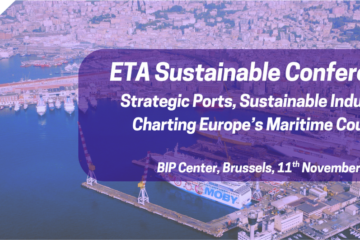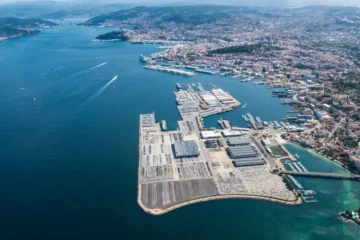The International Maritime Organization reached a historical agreement at the 80th Marine Environment Protection Committee meeting (MEPC 80) on a revised emissions reduction global strategy for the shipping sector. The 175 members agreed on a text that aims to peak green house gas (GHG) emissions as soon as possible while promoting a just and equitable transition, and “to reach net-zero GHG emissions by or around, i.e. close to 2050, taking into account different national circumstances”.
The agreement establishes a commitment to ensure an uptake of alternative zero and near-zero GHG fuels by 2030. These should represent at least 5%, striving for 10%, of the energy used by international shipping by 2030. The text includes as well a series of emissions reductions “indicative checkpoints” of at least 20%, striving for a 30% reduction by 2030, and at least 70%, striving for 80% reduction by 2040. There are goals for carbon intensity as well, as the sector will have to reduce its CO2 emissions per transport work, as an average across international shipping, by at least 40% by 2030, compared to 2008.
The adoption of other measures like a global carbon price, supported by over 70 developing and developed countries or new marine fuel standards have been postponed and will be up for further debate at future meetings of the MEPC.
The agreement is a compromise between a group of 32 countries led by Pacific Island states, which pushed for ambitious and stringent goals and a coalition of 16 IMO members led by China, Saudi Arabia, Argentina and Brazil that resisted the adoption of measures that would make the sector align with the temperature increase of 1.5°C, adopted in Paris in 2016 at the United Nations Framework Convention on Climate Change.
The loose wording and the lack of firm commitments in the final text has disappointed many insular and Western nations and environmentalist.
“The adoption of the IMO Emissions Strategy is an important development towards the decarbonisation of the shipping industry. Still, this compromise might fall short from the ambitions and expectations supported by the EU and the European maritime sector. Now it is up for the industry and the IMO members to properly implement this Strategy and to strive for the highest emissions reduction. To that effect, the European towage sector has been at the vanguard in the adoption of greener technologies and practices and we are looking forward to playing our part in this global effort“, said Anna Maria Darmanin, ETA Secretary General.



0 Comments